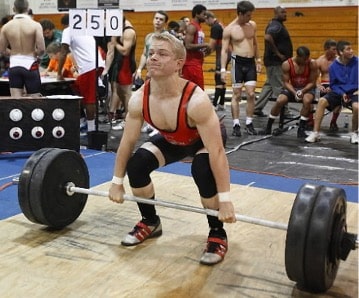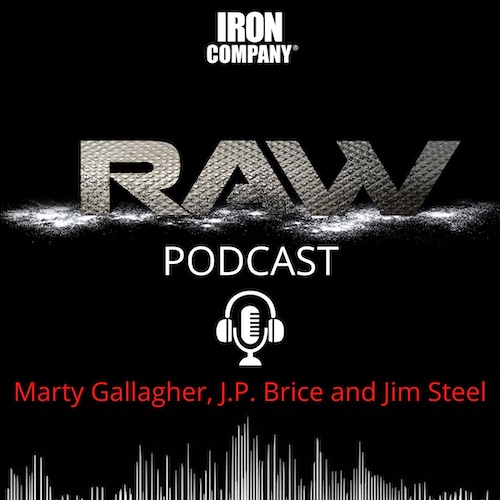
Nutritional Supplements We Like
“A human being is primarily a bag for putting food into.”
George Orwell
Young alpha male (above) on a quest for muscle and strength
I am not anti-supplement, but I am a born sceptic. The nutritional supplement industry has always been rife with hyperbole, outrageous exaggeration, and outright false advertising. A famous supplement maker, a professional acquaintance, made millions with his “revolutionary” muscle-building/fat-burning product. His genius was in advertising. He used before and after pictures of “transformed users,” regular folks, and created a stampede of buyers.
He once bragged to me that the entire supplement industry was “completely” corrupt and bogus. He smirked as he related that he had a cost of two dollars per unit (“high gloss packaging, filler and fluff”) invested in a product that he sold for $45 a pop. He insisted the entire supplement industry was cynical: the sellers knew their products were worthless because they “assembled them.” It was all about sales. No one, he maintained, could get results from the products of that era because none of the products contained any nutrients with any nutritional value.
His sales approach bucked the trend. For decades, supplement ads were all about muscled-up dudes, scantily clad bikini babes and “big lie” promises. My acquaintance jolted the complacent industry with his ads that featured dramatic transformations of regular people. He flooded the muscle mags with two-page ads. Each page would have thirty or so small before-and-after photos of regular folks. The transformations were visible and profound – and fake. Each ‘before’ image made a little fatter and each ‘after’ image streamlined. This was in an era when photoshopping was unheard of. He later died in his New Jersey mansion of a drug overdose.
I feel extremely confident in saying that every nutritional supplement sold in every muscle magazine prior to 1980 was worthless. Later in life I discovered that all the protein supplements sold back in those days used anemic, impotent, soy protein. The soy protein swindle ended in the late 1970s when Rheo H. Blair introduced Milk & Egg protein and ran lengthy ads in Iron Man magazine extolling the virtues of milk and egg protein while explaining why soy sucked. That was an industry game changer.
Fast forward to 2022. The hyperbole continues and while anemic products are still the norm, unlike yesteryear, nowadays there are quality nutritional supplements available. I have used certain nutritional supplements with great consistency my entire adult life. There are other nutritional supplements that I have used with varying degrees of success, periodically and sporadically. Overall, there is a need for the intelligent use of nutritional supplements on a limited and targeted basis.
How is someone to sort through the supplemental haystack to find the golden needle, a supplement, or supplements, that factually, measurably, improves physique and/or performance?
A supplement is meant to supplement (not supplant or replace) the expert use of regular food. The eternal foundation of power nutrition is the consumption of nutrient-dense, seasonally appropriate, locally sourced, proteins and produce. The more organic the better. Optimally, the human body runs on organic food, consumed on a regular and routine basis.
Easy to digest foods easily convert into body fat. Chips, sodas, cakes, pie, beer, whatever comes in a wrapper, package or can, converts into stored body fat with the greatest of ease. Easy to digest foodstuffs spike insulin through the roof. There can be no fat burning if insulin floods the bloodstream. The first order of business is to clean up the content of the diet. Jettison the bad stuff, heavy up on the good stuff.
Past that, cleaning up content, feel free to use whatever clean content you desire; go keto, vegetarian, lacto-vegetarian, whatever content you pick, keep it clean and organic. Do not eat foods that spike insulin all day every day. Be smart. If eating high glycemic food or drink, eat it in combination with protein, fiber, and most particularly, fat. If insulin producing food are consumed in combination with protein/fiber/fat, the severity of the spike is deadened, reduced.
Square up the nutritional content. There will be “gaps” in the diet. Usually, the hard training athlete is unable to consume the optimal amount of a particular nutrient or trace element and uses nutritional supplementation to address shortfalls. Potent supplements used correctly amplify results and acts as a force multiplier.
Supplements can make life easier for those dedicated to the consumption of nutrient-dense food. Caloric deficiencies, micronutrient deficiencies, anemia, etc., can be corrected with the expert use of regular food augmented by potent nutritional supplements used with great expertise. Here are the nutritional supplements that I have used and continue to use…
- Protein powder: my most consistent supplement. Hardcore athletes need extra protein. The easiest way to bump up protein intake is to drink it. I use whey and caseinate, 30-35 grams of protein per serving.
- Sport nutrition bars: I love the ease and taste. Clean calories, a meal in a wrapper, a legal taste treat, I have a higher calorie sport bar for bulking winters and a low-calorie sport bar for leaning out in summer.
- Pills: my wife makes me take them. When I am serious, I take vitamins and minerals, fish oil, amino acids, beef liver, etc., not consistent in this as I should be.
- MCTs: medium-chain triglycerides have gotten positive press in recent years. MCTs are calorically dense, 100-calories per tablespoon, yet virtually impossible to end up stored as body fat. I am a big fan of MCTs.
- Creatine monohydrate: this supplement is effective when the athlete is seeking to add lean muscle mass. Creatine attracts water and swells muscles, improving lifting leverages.
- Workout replenishment: it makes perfect sense to replenish that which has been consumed during an intense training session. I use a half-protein/half carb mixture. Drink it ¾ of the way through a workout.
Bottomline: take a hard look at your diet: look to tighten up the purity of the content. Do you have an overarching physique or performance goal? Classically, once a concrete athletic goal is identified a timeline is established. The athlete then works toward the goal, taking small sequential steps. Training and nutrition are synchronized and coordinated, nutritional supplements are then added with precision and purpose. Results, or a lack thereof, are logged and monitored. You do not have to be cynical about supplements, but you need to be skeptical. At some point, assuming you have done your part, supplemental results need to be forthcoming.
About the Author - Marty Gallagher
As an athlete Marty Gallagher is a national and world champion in Olympic lifting and powerlifting. He was a world champion team coach in 1991 and coached Black's Gym to five national team titles. He's also coached some of the strongest men on the planet including Kirk Karwoski when he completed his world record 1,003 lb. squat. Today he teaches the US Secret Service and Tier 1 Spec Ops on how to maximize their strength in minimal time. As a writer since 1978 he’s written for Powerlifting USA, Milo, Flex Magazine, Muscle & Fitness, Prime Fitness, Washington Post, Dragon Door and now IRON COMPANY. He’s also the author of multiple books including Purposeful Primitive, Strong Medicine, Ed Coan’s book “Coan, The Man, the Myth, the Method" and numerous others. Read the Marty Gallagher Biography for a more in depth look at his credentials as an athlete, coach and writer.


